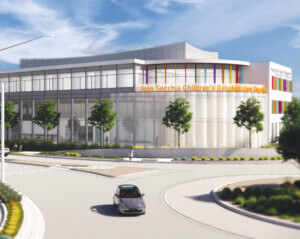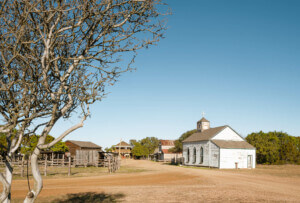Adding to its normal population of lions and tigers, Detroit may be gaining a whole new demographic of furry inhabitants if proposed legislation passes in the spring allowing urban farmers to keep livestock in the city limits.
In many American cities urban agriculture means community gardens set up in empty lots. Detroit is no exception in this respect, but things might be getting a little more rural soon in the Motor City. After a year-long initiative to discuss the potential of urban farming throughout urban centers in Michigan, new legislation may be put before the local government as early as next spring concerning urban agriculture. The issue at hand is a question of raising, breeding, and slaughtering livestock in city limits, greatly expanding the definition of urban agriculture.
Currently keeping livestock in the city of Detroit is illegal. This has not stopped many from keeping chickens, ducks, and occasionally a few goats. Advocates of urban livestock point out the many advantages of urban agriculture, along with the addition of benefits that only come with keeping animals. Though community gardens have the capacity to produce no small amount of fresh vegetables, as well as providing a community developments space, livestock are able to produce meat, eggs, and milk, all while keeping overgrown abandoned lots trimmed through grazing. Opponents to the idea of keeping animals in the city cite concerns about health and safety of the public as well as the animals. With empty lots often strewn with litter, broken glass, or building ruins, some have concerns that animals will be in danger. Addressing the concerns of both sides of the issue was the task of an urban livestock working group set up in 2014.
The 20-member urban livestock working group was formed specifically to discuss the possibility to allowing livestock in urban centers around Michigan. Cities such as Ann Arbor and Ypsilanti already allow limited livestock, and were used as examples by the group. Made up of state and local government representatives, farmers, environmentalists, and veterinarians, the group looked at economic, health and welfare, and land use issues.
One of the pressing concerns of all sides of the discussion was the care of the animals. With many urbanites not familiar with raising and caring for animals, the future legislation is planned to have considerations for ensuring that animals are not neglected or mistreated. The legislation will also most likely set limits on the types and numbers of animals allowed.
The large number of empty lots in Detroit, as well as in other post-industrial cities, have long been a discussion for urban planners hoping to revitalize blighted neighborhoods. With new ideas of how cities can define themselves through local production and self-sufficiency, many feel urban agriculture is a logical solution. And many also believe there is nowhere better than Detroit, a city built on production innovation, to experiment with an ancient occupation in new ways.










